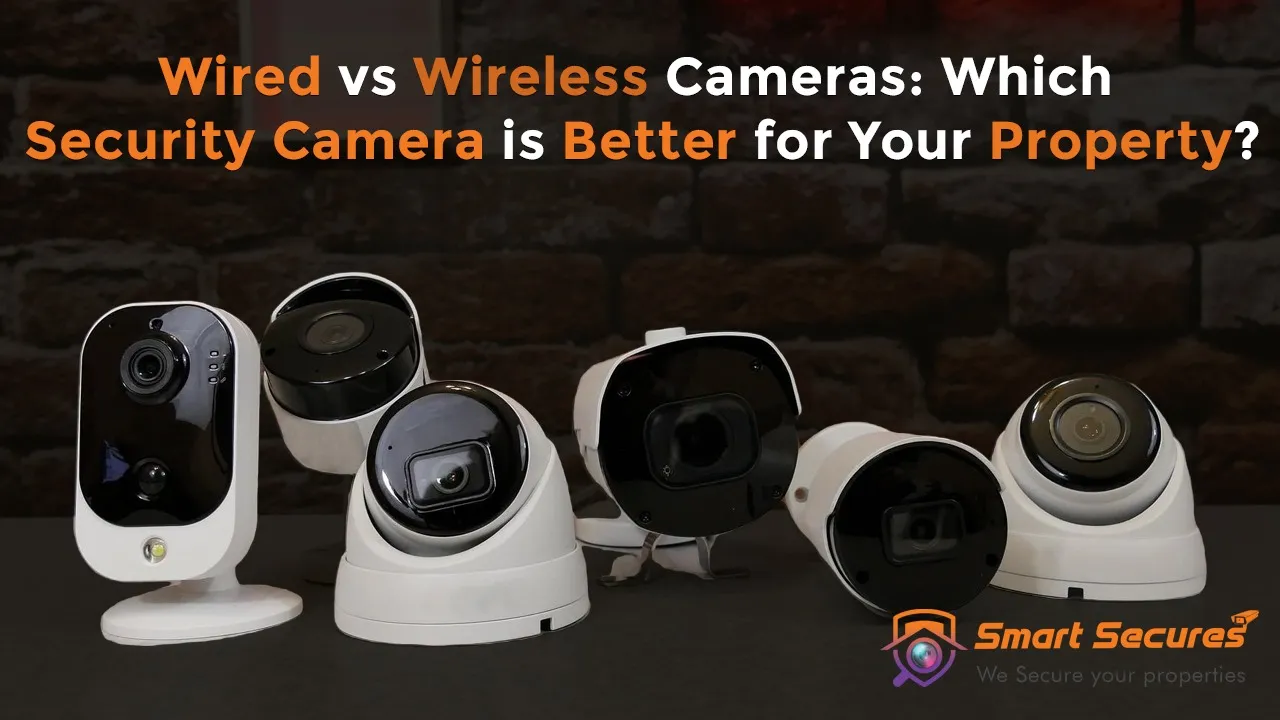Choosing the right security camera for your property can feel like a daunting task. With so many options available, deciding between wired and wireless cameras is one of the most important choices you'll make. In this guide, we’ll break down the differences, advantages, and limitations of both options to help you make an informed decision.
Why Security Cameras Are Essential
Before diving into the comparison, let’s understand why security cameras are indispensable in today’s world.
Enhanced Safety
- Deters potential intruders.
- Provides evidence in case of a security breach.
- Enables real-time monitoring of your property.
Peace of Mind
- Monitor activities even when you’re away.
- Keep an eye on kids, pets, or elderly family members.
- Feel secure knowing your property is under surveillance.
Key Differences Between Wired and Wireless Cameras
Installation Process
Wired Cameras
- Require a physical connection to power and recording devices.
- Involve complex security camera installation with professional assistance.
- Stable performance with no dependency on Wi-Fi.
Wireless Cameras
- Easy to install with no wiring hassles.
- Depends on Wi-Fi connectivity.
- Suitable for renters or temporary setups.
Power Source
- Wired Cameras: Depend on constant power supply via cables.
- Wireless Cameras: Often battery-operated; some offer solar charging.
Connectivity and Range
- Wired Cameras: Unlimited range as long as cables are intact.
- Wireless Cameras: Limited by Wi-Fi range; may face signal interference.
Video Quality
Both options offer HD resolutions (1080p, 4K), but reliability can vary based on connectivity.
Advantages of Wired Cameras
Reliable Connection
- No dependency on the internet or Wi-Fi.
- Consistent video quality without interruptions.
High Security
- Lower risk of hacking compared to wireless systems.
- Suitable for businesses and high-security areas.
Long-Term Durability
- Designed for permanent installations.
- Robust performance in extreme weather conditions.
Advantages of Wireless Cameras
Flexible Installation
- Can be mounted anywhere without worrying about cables.
- Ideal for properties with limited wiring options.
Remote Accessibility
- Monitor footage from anywhere using a smartphone or PC.
- Receive instant alerts and notifications.
Cost-effective for Small Properties
- Affordable for basic home surveillance needs.
- No need for additional cabling infrastructure.
Limitations of Each Option
Wired Cameras
- Complex Installation: Requires drilling and cable management.
- Limited Mobility: Hard to relocate once installed.
- Higher Initial Costs: Due to professional CCTV installation services and accessories.
Wireless Cameras
- Battery Maintenance: Requires regular charging or battery replacement.
- Wi-Fi Dependency: Performance depends on internet speed and stability.
- Security Risks: Vulnerable to hacking if not properly secured.
Which One Is Right for You?
Consider wired cameras if:
- You need a permanent, reliable surveillance solution.
- Your property has the infrastructure for wiring.
- You prioritize consistent performance over convenience.
Consider Wireless Cameras If:
- You rent your property or plan to move soon.
- You want an easy, quick setup.
- You prefer remote access and flexibility.
Cost Comparison
| Feature | Wired Cameras | Wireless Cameras |
| Initial Cost | Higher | Lower |
| Installation Cost | INR 2,000 – 5,000 | Minimal (DIY options) |
| Maintenance Cost | Low | Moderate (battery) |
Emerging Trends in Security Cameras
- The future of security cameras is exciting, with innovations such as
- AI-Powered Features: Facial recognition and behavior analysis.
- Cloud Storage: Unlimited footage access anytime, anywhere.
- Smart Integration: Compatibility with smart home ecosystems.
Conclusion
Both wired and wireless cameras have their unique strengths and limitations. Your choice depends on your specific needs, property type, and CCTV camera packages. Wired cameras are best for stable, long-term setups, while wireless cameras offer flexibility and convenience. Assess your priorities, and you’ll find the perfect security solution for your property.

